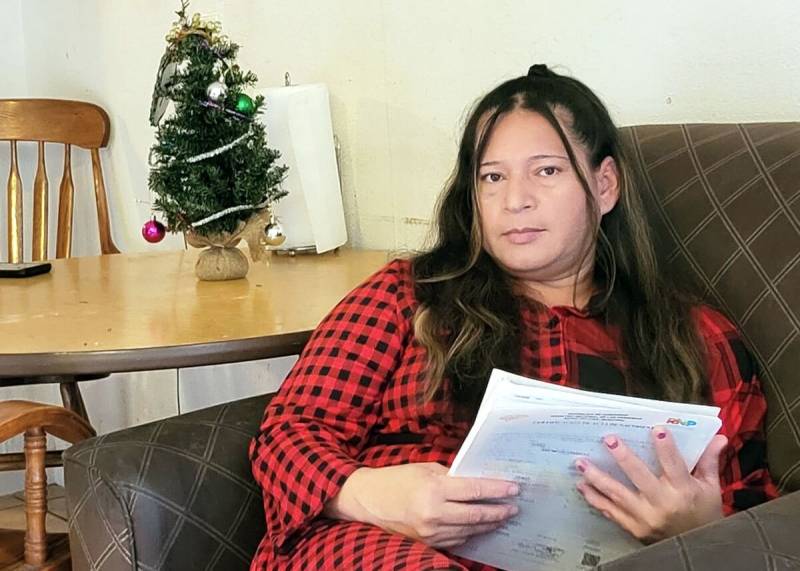When she was released from detention with a temporary status called “parole,” she was given a year before she had to check in with ICE. Díaz said she thought she had already been granted asylum.
“When a person first gets here, they don't know how things work, and nobody explained it to me,” she said.
The asylum process can be baffling, and, as Díaz learned, navigating it without a lawyer can be disastrous. Unlike in criminal cases, people in federal immigration court have no right to a court-appointed lawyer if they can’t find their own.
Like Díaz, thousands of newly arrived asylum seekers never get their day in court. They can be tripped up by paperwork, and a clerical error can be enough to get them deported.
Last year a third of all immigrants in asylum cases did not have representation, according to data analyzed by the Transactional Records Access Clearinghouse, or TRAC, a research center at Syracuse University. And over the past two decades, just 10% of asylum seekers without legal representation won their cases, while those with lawyers were nearly four times as likely to win protection, according to TRAC’s data.
The luckiest lunch break
After passing an initial asylum screening, Díaz and her kids were released from family detention on June 20, 2018, and told to check in with ICE before her one-year parole document expired. So on June 13, 2019, Díaz voluntarily went to the ICE office in Sacramento. She was instructed to return on June 20 with all her documents, which she did. That day, ICE officials put her in a GPS ankle monitor. On July 12, they summoned her again, and that’s when she learned she had been ordered deported “in absentia” by a Los Angeles immigration judge on Nov. 27, 2018.
ICE officials told Díaz they planned to deport her that same day. But first, the office was closing for lunch.
“I went outside, sat down and burst into tears,” Díaz said. “I cried because I had gotten all the way here with my three children and I couldn’t imagine taking them back to Honduras.”
A pair of immigrant rights advocates with NorCal Resist who were leafleting outside the ICE building stopped to check on Díaz, said Katie Fleming, director of the removal defense program at the California Rural Legal Assistance Foundation in Sacramento. The advocates drove her to Fleming’s office and made an urgent plea for legal help.
“We were able to talk to her and then advocate with ICE to give her a few more days to be able to try to reopen that removal proceeding because she did not know about it,” Fleming said.
The swift response by the activists and lawyers was an incredible stroke of luck for Díaz. Attorneys succeeded in reopening her case. And in March, with Fleming representing her, she won asylum for herself and her children.
But what Díaz experienced is common for asylum seekers without a lawyer. Fleming said Díaz’s case shows how even people with legitimate claims to asylum can be ordered deported without getting a chance to make their case to a judge.
“She didn’t understand, as most people don’t, what the next process entailed in terms of applying for asylum,” she continued. “She didn’t realize that going to an ICE office is different from going to court.”

